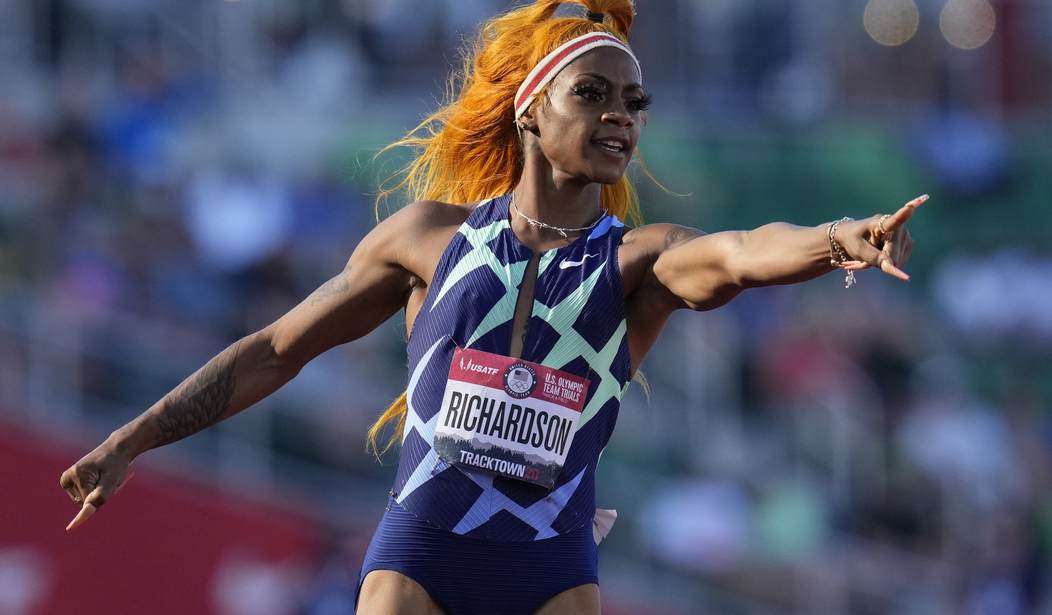After we learned that Sha’Carri Richardson was going to miss out on at least part of the Olympic Games, including her primary track event, all sorts of questions and complaints were making the rounds. She failed a drug test, showing positive for THC, later revealing that she was stressed out over the sudden death of her mother and decided to self-medicate. Given how broadly marijuana has been decriminalized or legalized in the United States at this point, this turn of events has led to all sorts of activists rushing to her defense. Some have even been calling on President Biden to step up and take her side.
One question I asked on Twitter today produced a wide variety of results from various people. If we’re still testing athletes for THC, what are the performance-enhancing aspects of marijuana that would give an athlete an unfair advantage?
Can someone explain what performance enhancements athletes obtain from smoking pot? Because I'm not seeing it unless someone is stashing bags of Cheetos at the finish line. https://t.co/aKeqVHoDh0
— Jazz Shaw (@JazzShaw) July 3, 2021
You can scroll through some of the responses to see how many hot takes on this are going around, though a number of good points were made. Then I came across an article from NBC News that addressed my precise question. As it turns out, there doesn’t seem to be any evidence that THC enhances performance. The rule is simply a legacy of both international and national rules covering “anti-doping” and as long as THC is on the list, that’s pretty much the end of the conversation.
“It’s not a steroid. It’s not a growth hormone. It’s nothing to make you run faster, jump faster, throw faster — furthest thing from that,” said Joseph M. Hanna, a Buffalo, New York, attorney who is not working with Richardson but has represented major sports league franchises and professional athletes. “It has more of an opportunity to slow you down than to speed you up.”
Nonetheless, marijuana is on the World Anti-Doping Agency’s lengthy list of prohibited substances, which are either banned from use entirely by athletes or banned during competition periods. Marijuana falls under the latter category, meaning it is prohibited from being used from 11:59 p.m. on the day before a competition through the end of a competition.
To be on the list, a substance must meet at least two of the following criteria: the substance has to be considered a performance enhancer; it must potentially pose a health risk to athletes; and its use must violate the “spirit of sport,”
First of all, I can totally agree with some of the people who were quick to point out the obvious. Yes, the rules are the rules. She knew the rules and, for whatever reason, broke them. So she doesn’t have much room to negotiate here. I get it.
But with that out of the way, let’s note that it’s the World Anti-Doping Agency that sets and maintains these rules. The U.S. Anti-Doping Agency is a signatory to the agreement and doesn’t change any of the rules to comport with local laws in response. So should the world agency be looking at revising the rules?
There are a lot of other countries where pot is still illegal, so that might not be possible. But if they’re “following the science” it might be worth considering. After all, as the linked article notes, the rules of the World Anti-Doping Agency set forth the criteria for how a drug winds up on the list of prohibited substances. It has to meet two of three criteria. It needs to be a performance enhancer, pose a “health risk,” or violate “the spirit of sport.” That last one is such a vague grab-bag requirement that the agency could probably apply it to anything it wants to.
The performance enhancement argument seems like incredibly weak tea. I suppose you might try to make the argument that it eases stress, but that benefit likely comes at a cost in terms of your competitive edge. One follower on Twitter argued that THC has medical healing properties. So “it has obvious health benefits which is therefore performance-enhancing.” I’m sorry, but if that’s your rationale, then antibiotics are also “performance-enhancing” because if you are cured of an infection prior to your event you’ll probably perform better.
As far as a health risk goes, sure. There’s a health risk involved with smoking anything. Or, as one person interviewed by NBC pointed out, drinking alcohol or eating greasy foods. Caffeine is arguably far more addictive than pot and probably speeds you up a bit, but they don’t test for that.
All I’m saying is that there should probably be some sort of consistency in the rules here. I’m not even 100% on board with pot legalization anymore, particularly after learning about studies showing risks from the modern, very powerful strains of marijuana out there. But this seems like a rather thin excuse to knock someone out of the competition particularly when they stood a pretty decent chance of winning.








